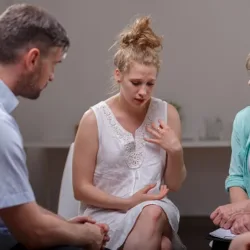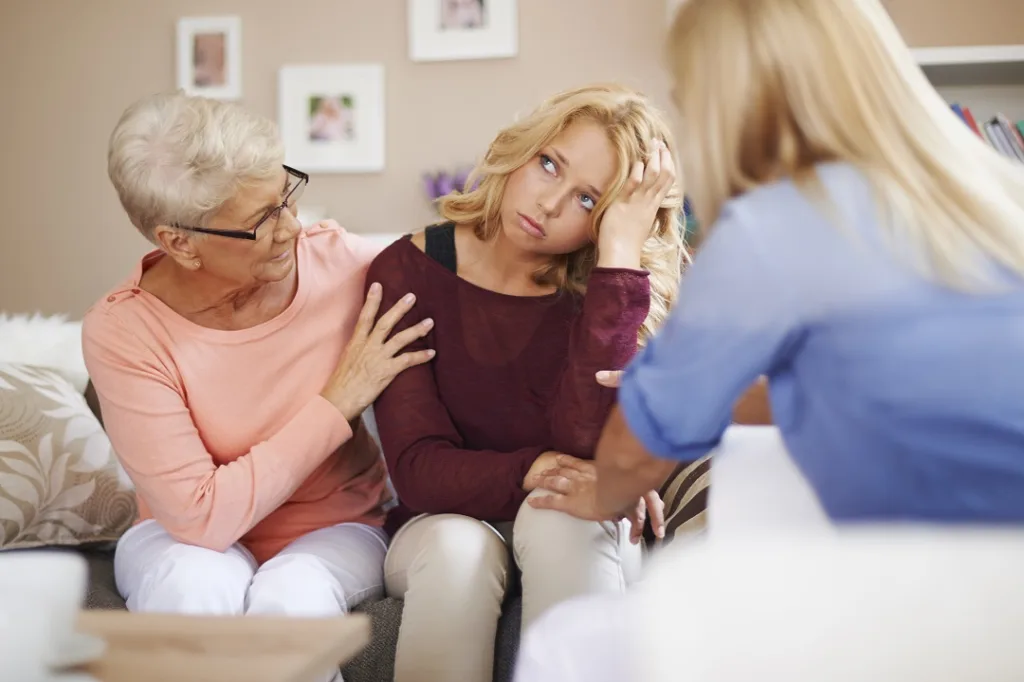
“Addiction is a family disease.”
If your child is struggling with a substance use disorder, you may have heard this before. Addiction is viewed as a family disease partly because the substance use affects the whole family. As a result of the family member’s substance use, loved ones experience emotions including fear, worry, anger and sadness. They also experience issues such as lack of trust, codependency, unhealthy boundaries, enabling and difficulty enforcing rules and consequences. All of these emotions and issues are difficult to go through on one’s own. However, many parents feel isolated as a result of the stigma of having a child with an addiction.
This is where support groups come in. When you begin attending a support group, you are able to go to a meeting and find yourself in a room full of people who understand what it is like to be the parent of a child with an addiction. They can relate to the emotions you feel and the issues your family is struggling with. They can share what helped them cope with these difficult emotions in the past and the importance of self-care. They can give you suggestions for how to deal with the issues your family is struggling with by using their own family’s experience. They can provide input on what has not worked for their family, so that your family does not make the same mistakes.
From my experience, the clients who are the most successful are the ones whose parents are involved in their treatment and getting support for themselves as well. Remember, the disease of addiction makes those affected by it feel isolated and helpless. When family members come together in the form of a support group, they find understanding, hope and guidance. If you are interested in joining a support group, below are a few options:
Al-Anon and Nar-Anon
Many people in recovery attend Alcoholics Anonymous or Narcotics Anonymous meetings to help sustain their sobriety. Al-Anon and Nar-Anon were developed by and for the family members and loved ones of people with substance use disorders. These meetings are prevalent throughout our area. To find an Al-Anon meeting near you, go to al-anon.org/find-a-meeting. If you are looking for a Nar-Anon meeting in your area, go to nar-anon.org/find-a-meeting.
Rehab After Work’s Family Program
The family program offered through Rehab After Work is a unique form of support where both parents and clients come together to discuss the issues they have been experiencing at home. Parents are able to support one another and get feedback from other parents, clients and a counselor on how to improve their relationship with their child and help them achieve and sustain recovery. To find out more information about Rehab After Work’s family programs, contact your child’s counselor today.
Online Support Groups
If you’re unwilling or unable to attend an in-person support group, online support groups are an excellent resource. Being able to access feedback and support 24/7 is a fantastic tool for parents of children with substance use disorders. Learn2cope.org, The Addict’s Mom, and Friends and Family of Addicts are just a few of the many support groups available online.
Individual Counseling
You may feel that support groups are not enough to help you navigate the emotional rollercoaster of loving someone with a substance use disorder. If this is the case, consider seeing an individual therapist who can help you process the emotions and issues that go along with being the parent of a child with an addiction. Life Counseling Services, a Rehab After Work treatment partner, can provide these services. Call 610-644-6464 to find a therapist near you.
Shaylyn Forte, M.Ed., CAADC
Young Adult IOP Clinician, Rehab After Work






